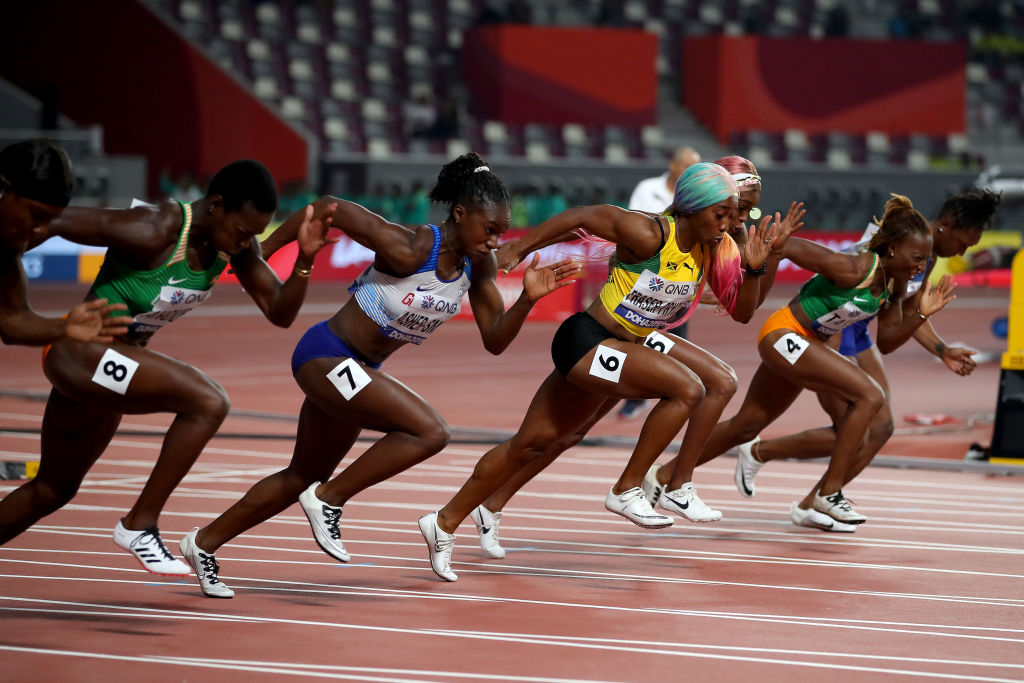The Women's 100m Final is one of the most exhilarating events in athletics, captivating audiences around the world with its sheer speed and competitive spirit. This race is often considered the pinnacle of track and field, showcasing the incredible talents of female athletes who have dedicated their lives to the sport. With a blend of speed, strength, and strategy, the Women's 100m Final is not just a race; it is a celebration of athletic prowess and determination.
As the finish line approaches, the atmosphere becomes electric, filled with anticipation and hope from fans and competitors alike. The Women's 100m Final has a rich history, marked by unforgettable moments and record-breaking performances that have etched names into the annals of sporting history. Athletes from all corners of the globe come together, each vying for the coveted title and the opportunity to stand atop the podium, draped in their national colors.
This event not only showcases individual talent but also highlights the growth of women's athletics over the years. As more women break barriers and set records, the Women's 100m Final serves as a reminder of the progress made in achieving equality in sports. Fans eagerly await each championship, knowing they are about to witness history in the making.
What Makes the Women's 100m Final So Special?
The Women's 100m Final is not just about speed; it encompasses a range of factors that contribute to its uniqueness. From the psychological aspects of competition to the physical training and preparation, each athlete brings something different to the track. Here are some elements that make this event stand out:
- Elite Competitors: The race features the best of the best, showcasing world-class athletes who have trained rigorously.
- Record-Breaking Performances: The thrill of witnessing records being shattered adds to the excitement of the event.
- Global Representation: Athletes from various countries bring diverse styles and techniques to the race.
- Inspiring Stories: Each competitor has a unique journey, often overcoming obstacles to reach the finals.
Who Are the Top Athletes in Women's 100m History?
Throughout the years, numerous athletes have left an indelible mark on the Women's 100m Final. Here are some of the most celebrated names:
- Florence Griffith-Joyner: Known for her stunning speed and flamboyant style, she holds the world record for the Women's 100m at 10.49 seconds.
- Marion Jones: A former Olympic champion, her performances in the late 1990s and early 2000s were remarkable.
- Elaine Thompson-Herah: The Jamaican sprinter has made headlines with her impressive performances in recent Olympics.
- Shelly-Ann Fraser-Pryce: A two-time Olympic champion, she is known for her explosive starts and tenacity on the track.
What Is the Format of the Women's 100m Final?
The format of the Women's 100m Final is straightforward yet thrilling. Athletes must first qualify through heats and semifinals, where they must showcase their speed to secure a spot in the final. The final event typically involves eight competitors racing down a straight track, and the winner is determined by the first athlete to cross the finish line. The excitement builds as fans cheer for their favorites, eagerly watching every stride as the runners push themselves to their limits.
What Are the Key Techniques in Sprinting?
To excel in the Women's 100m Final, athletes must master various techniques that enhance their performance. Some of these techniques include:
- Starting Blocks: Proper placement and technique in the starting blocks can greatly affect the sprint start.
- Acceleration Phase: Athletes must focus on a powerful initial burst of speed to gain an early advantage.
- Running Form: Maintaining proper posture and arm movement is essential for efficiency and speed.
- Finishing Technique: Leaning forward at the finish line can make the difference between victory and second place.
How Do Female Athletes Prepare for the Women's 100m Final?
Preparation for the Women's 100m Final is an intricate process that involves physical training, mental conditioning, and nutrition. Athletes typically follow a rigorous training regimen that includes:
- Strength Training: Building muscle strength is crucial for explosive speed.
- Speed Workouts: Sprinting drills and interval training help improve overall speed and endurance.
- Mental Conditioning: Visualization and focus techniques help athletes prepare mentally for competition.
- Nutrition: A balanced diet fuels the body for optimal performance.
What Are the Most Memorable Moments in Women's 100m Final History?
The Women's 100m Final has witnessed countless memorable moments that have become part of Olympic lore. Here are a few highlights:
- Florence Griffith-Joyner's Record: Her 10.49 seconds run at the 1988 Seoul Olympics remains unbeaten.
- Marion Jones's Dominance: She swept the sprint events in the 2000 Sydney Olympics.
- Elaine Thompson-Herah's Double Gold: Her impressive performances at the 2021 Tokyo Olympics showcased her incredible talent.
- Shelly-Ann Fraser-Pryce's Comeback: Her return to the top of the podium after becoming a mother was a heartwarming story.
Conclusion: The Legacy of the Women's 100m Final
The Women's 100m Final is more than just a race; it is a testament to the strength, resilience, and determination of female athletes. With each passing year, the event continues to grow in stature and significance, inspiring young girls around the world to pursue their dreams in athletics. As we look toward the future, one thing is certain: the Women's 100m Final will continue to be a highlight of competitive sports, showcasing the best of what women can achieve on the track.
Drew Pritchard: Unraveling The Mystery Behind His Divorce
Unveiling The Talented Mike And Molly Cast
Unraveling The Departure: Why Did Justin Willman Chambers Leave Grey's Anatomy?


